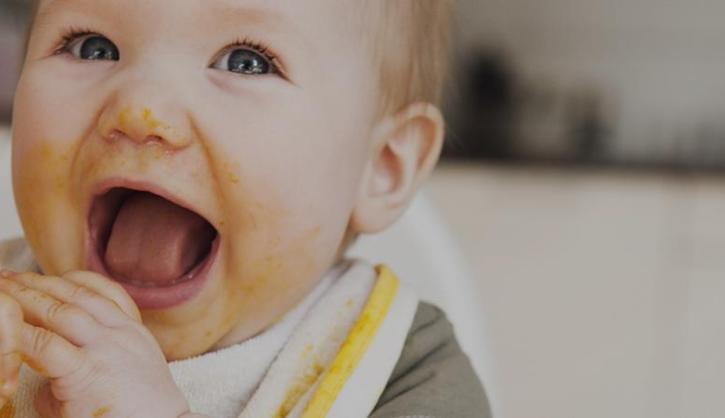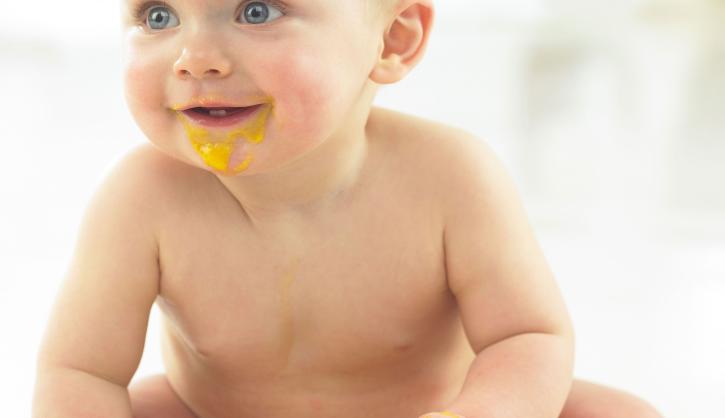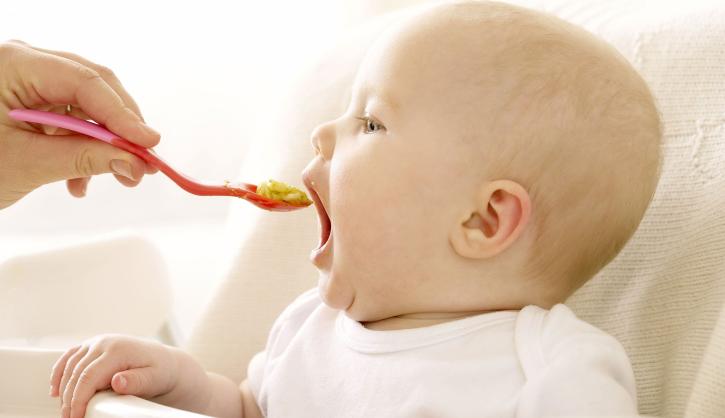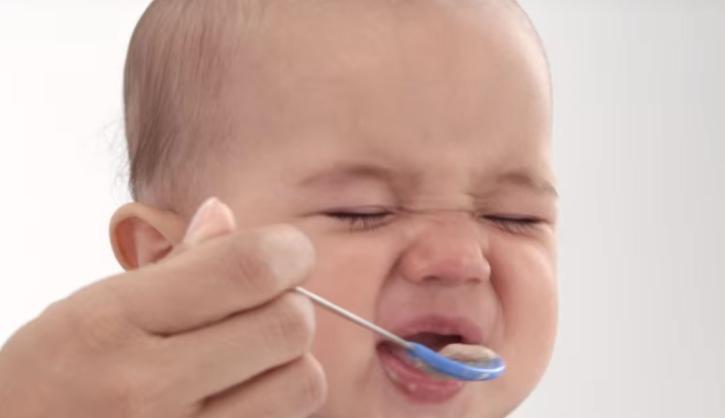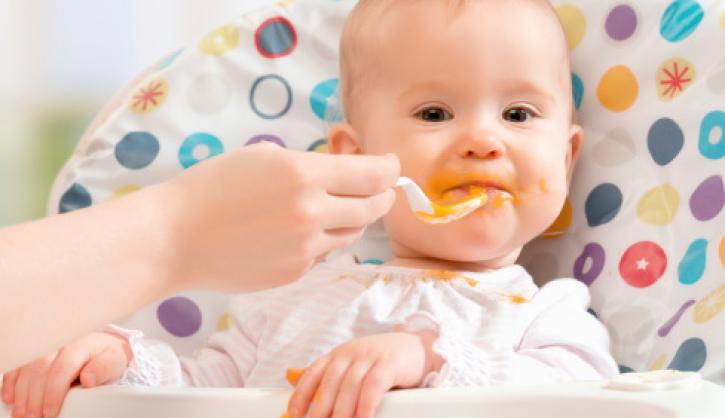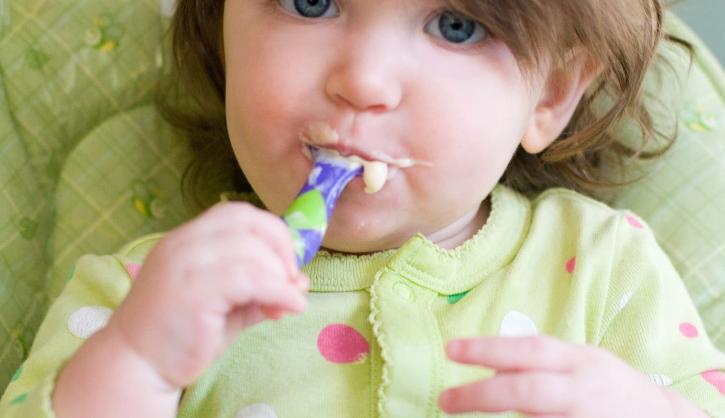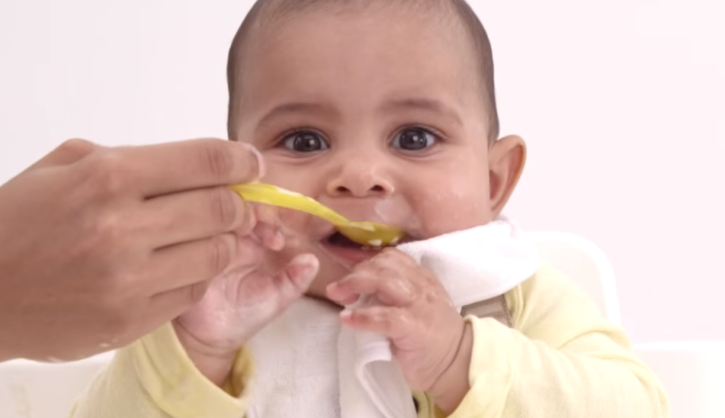Introduction
You may surprise yourself over the coming weeks by saying the same thing to your child when they frown at their purée of green beans or spit out all the pieces of the broccoli you cooked so lovingly! It’s undoubtedly frustrating, and it’s natural to try to use your powers of persuasion and get them to pick up that piece of vegetable. It’s also important to remember that no matter how frustrating it is, you should persevere with feeding your child a range of healthy foods.
Feeding a toddler or a growing baby isn’t always easy, especially if they’ve decided they don’t like something. But if you can help them develop good eating habits, the chances of them trying and enjoying new foods throughout childhood, and developing healthy habits for the future, are greatly increased.
This is because good eating habits start early with the introduction of solids. Teaching your child to eat well won't necessarily be an easy ride, but the sooner you start encouraging them to eat the right things and enjoy exploring new tastes, the better these habits will be.
Some important facts about infant feeding to consider
- As many as 50% of babies in the 13 to 18 month age range eat the same meals as their parents. This can be problematic as their digestive system and organs only fully mature after the age of 2 years. Ideally your child will eat stage-appropriate foods that prepare them for the tastes and textures of family meals while giving them all the nutrients they really need.
- Iron deficiency is common in the UK, with 1 in 8 toddlers being deficient. It’s important that baby and toddlers meals contain adequate amounts of iron to help with their growth and development.
- Children's intake of protein, the building block foods (meat, fish and eggs, in particular) between the ages of 6 and 36 months is often too high. The risk is that the child may become overweight. This can even lead to childhood obesity further down the line. The correct amount of protein is between 10-15g per day up to the age of age of three years.
- More than half of young children eat too many sweet foods. It’s important that your child doesn’t eat too much sugar as an infant. Feeding them too much can increase their risk of dental caries, and might encourage a sweet tooth later on in life!
- Studies indicate that many children do not consume enough calcium to meet their daily needs. Calcium is important for the normal growth and development of bones in children.
With these facts in mind, it’s easy to see why helping your infant develop good eating habits is important. Feeding a toddler or baby can be a challenge when they decide they don’t like something, but persevering with a healthy balance of food is good for their health in the long term.
Some basic rules for feeding your baby 6 months onwards
If you follow a few simple rules, you’ll know you’re giving the best to your baby or toddler. Eating habits, once established, can be tricky to break – so make sure the ones your child forms are good, and set them up for the future.
- Supply three regular meals per day (with 2-3 healthy snacks as needed) containing a balance of carbohydrates (starchy foods), proteins, fruits, vegetables, dairy products and cereals.
- Try to vary their meals from week to week in order to develop their sense of taste. Always giving them the same flavours can put them off tasting new foods.
- Your child should only have meat or fish once a day. Three of four teaspoons between the ages of 6 and 12 months is enough.
- Eggs must be well cooked. Start with just a little, then work up to one whole egg per week.
- When it comes to salt, there's no need to add any to homemade baby food. Don't add it to shop-bought jars either. It isn’t necessary and the food will taste good to your baby without it! This is a good habit to adopt throughout life.
- Avoid adding any sugar to food and drinks.
- When it comes to drinks, try and stick to water. Keep sugary drinks for special occasions like birthdays if you do give them to your child.
Making good habits easier
Your baby will adopt these good infant feeding habits more readily if you also apply good and sensible eating habits to yourself. After all, you’re their biggest role model and they want to learn as much from you as they can! If you’re eating snacks they like but know they can’t have, they probably won’t want to try that yummy piece of broccoli instead.
As your child gets older, let them help out in the kitchen so that eating becomes a time of fun and pleasure. They’ll learn more about the food they’re eating, become more familiar with different fruits and vegetables, and feel very grown up if they’re allowed to arrange their dinner on a plate! You might even inspire a future chef. When possible, sit around a table to eat meals with the family too. Your child might learn from watching others eat, and they’ll associate mealtimes with being with the people they like.
Not everything will work for your child, and you’ll doubtlessly come up against “I don’t like!” or “I want that!” at some point. But with plenty of understanding and gentle perseverance, you’ll help your child to form good eating habits that can last a lifetime.



